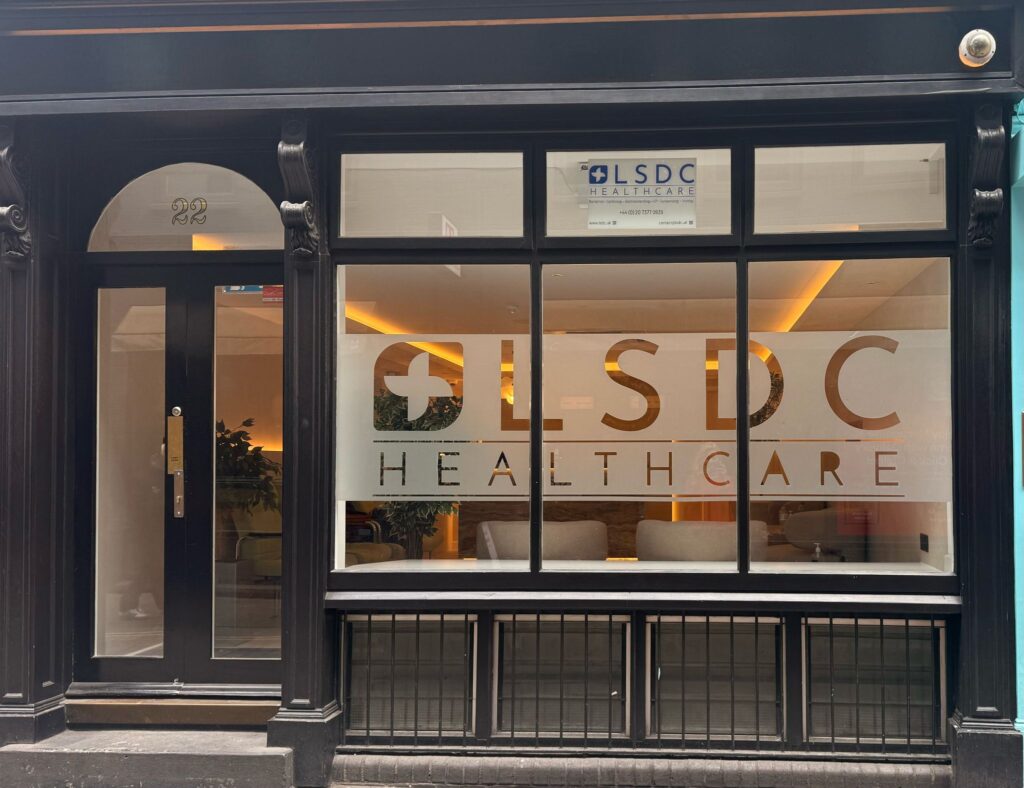Private pH Monitoring for Reflux in Central London
At LSDC Healthcare, we offer fast access to private pH monitoring for reflux in Central London, led by consultant gastroenterologists with expertise in reflux and motility disorders.
Located just two minutes from Liverpool Street Station, our clinic provides advanced diagnostic testing to confirm or rule out gastro-oesophageal reflux disease (GORD/GERD), guiding personalised treatment plans.
What Is pH Monitoring?
Oesophageal pH monitoring measures how often and how long stomach acid flows back into the oesophagus.
The test uses a thin catheter or a wireless capsule placed in the oesophagus to record acid exposure over 24 – 48 hours.
Results show whether your symptoms such as heartburn, regurgitation, chest pain, or cough are linked to acid reflux.
Who Might Need pH Monitoring?
Your consultant may recommend pH monitoring if you have:
Chronic heartburn or regurgitation
Atypical reflux symptoms (chronic cough, sore throat, chest discomfort)
Symptoms not improving with PPIs (acid suppression medication)
Suspected non-acid reflux or functional heartburn
Before surgery for reflux (e.g. fundoplication)
Types of pH Monitoring at LSDC
We offer two advanced methods:
Catheter-based pH monitoring: A thin tube is inserted through the nose into the oesophagus to measure acid exposure over 24 hours.
Wireless Bravo™ capsule pH monitoring: A small capsule is placed in the oesophagus during endoscopy, transmitting pH data for up to 48 hours, with no nasal tube required.
What Conditions Can It Help Diagnose?
Gastro-oesophageal reflux disease (GORD/GERD)
Reflux-related cough or chest pain
Non-acid reflux (with impedance-pH monitoring)
Functional heartburn vs true acid reflux
Surgical candidacy for anti-reflux procedures
What Happens During pH Monitoring?
Preparation:
You may need to stop acid-suppressing medication (PPIs) before the test, depending on your consultant’s instructions.
Procedure:
For catheter-based testing, a thin probe is gently inserted through the nose into the oesophagus and connected to a recorder.
For Bravo™ capsule testing, a small wireless capsule is attached during endoscopy.
You will go home and continue normal daily activities while recording symptoms and meals.
Afterwards:
The catheter is removed after 24 hours, or the capsule falls off naturally within a few days.
Data is analysed by your consultant, who will explain results in detail.
Consultant Expertise at LSDC Healthcare
Our consultants are highly experienced in neurogastroenterology, motility, and reflux disorders, including Dr Ahmed Albusoda, one of the UK’s few specialists formally trained in motility and reflux physiology.
You will receive a personalised report linking your symptoms with acid exposure, guiding the next step — whether lifestyle changes, medication, or surgical referral.
Why Choose LSDC for pH Monitoring?
Consultant-led from start to finish
Choice of catheter or wireless capsule testing
Cutting-edge motility and reflux diagnostics
Rapid access appointments — often within days
Central London location — near Liverpool Street Station
Recognised by insurers — Bupa, AXA, Aviva, Cigna, Vitality, Healix
Transparent self-pay packages available
Private Fees and Insurance
We offer transparent self‑pay packages for private gastroscopy, colonoscopy and advanced endoscopic procedures, and we’re recognised by Bupa, AXA, Aviva, Cigna, Healix and other major insurers.
Our team will assist with pre‑authorisation and claims to make the process straightforward.
LSDC Healthcare
A couple of minutes outside Liverpool St Station, this excellent facility is conveniently located for Medical consultations in London.
This facility is open during the evenings making it an excellent choice for busy professionals.

Book A Consultation
If you’ve been advised to undergo a gastroscopy, colonoscopy, or would like a second opinion, we invite you to book a consultation with one of our specialists.
Our team will review your symptoms, medical history, and determine the most appropriate diagnostic pathway for you.
Frequently Asked Questions — pH Monitoring
What is pH monitoring used for?
It measures acid exposure in the oesophagus to confirm or rule out gastro-oesophageal reflux disease (GORD/GERD).
Is the test uncomfortable?
The catheter-based test may feel slightly uncomfortable, but most patients tolerate it well. The wireless capsule option avoids nasal tubes entirely.
Do I need to stop my reflux medication?
Often yes, but it depends on why the test is being done. Your consultant will advise whether to stop or continue PPIs before the test.
How long does the test last?
Standard catheter-based tests last 24 hours. Wireless capsule testing can last up to 48 hours for more data.
Can I eat and work normally during the test?
Yes. You should eat and go about your normal activities so the test reflects typical acid exposure.
When will I get results?
Your consultant will analyse the data and provide a full report within a few days, often with same-week feedback.
Is pH monitoring covered by insurance?
Yes. LSDC is recognised by Bupa, AXA, Aviva, Cigna, Vitality, Healix, and most major insurers.
